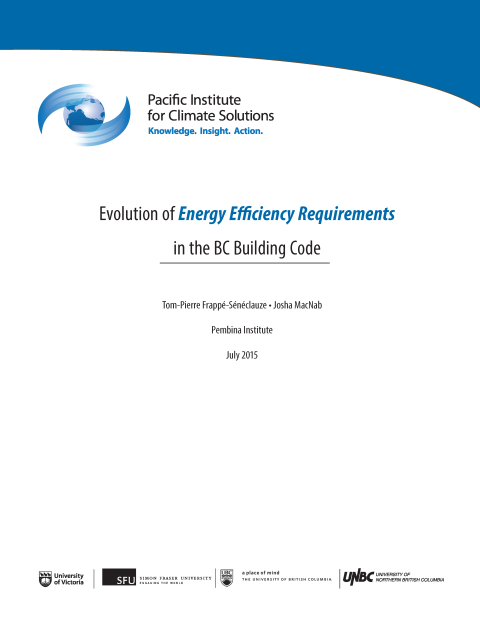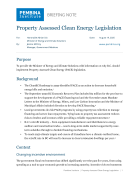Achieving market transformation towards net-zero buildings in British Columbia will require a multitude of policy tools, including incentives, funding, training, improvements in compliance and enforcement, benchmarking, a strong carbon tax and building regulations. Net-zero buildings are generally defined as highly efficient buildings that produce as much energy as they use averaged over the course of a year on site (or nearby). High energy efficiency buildings where energy use has been reduced to a level such that it could be generated on site are often labelled as ‘ultra-low energy’ or ‘net-zero ready’. This paper focuses specifically on the role and history of building regulations in accelerating energy efficiency.
Other policies are discussed further in the second paper in this series: The Path to “Net-Zero Energy” Buildings in B.C.






